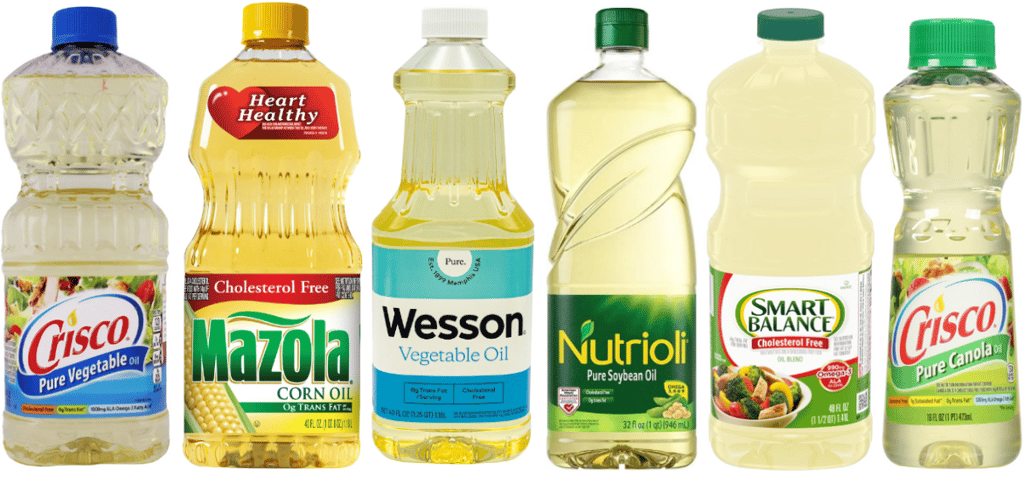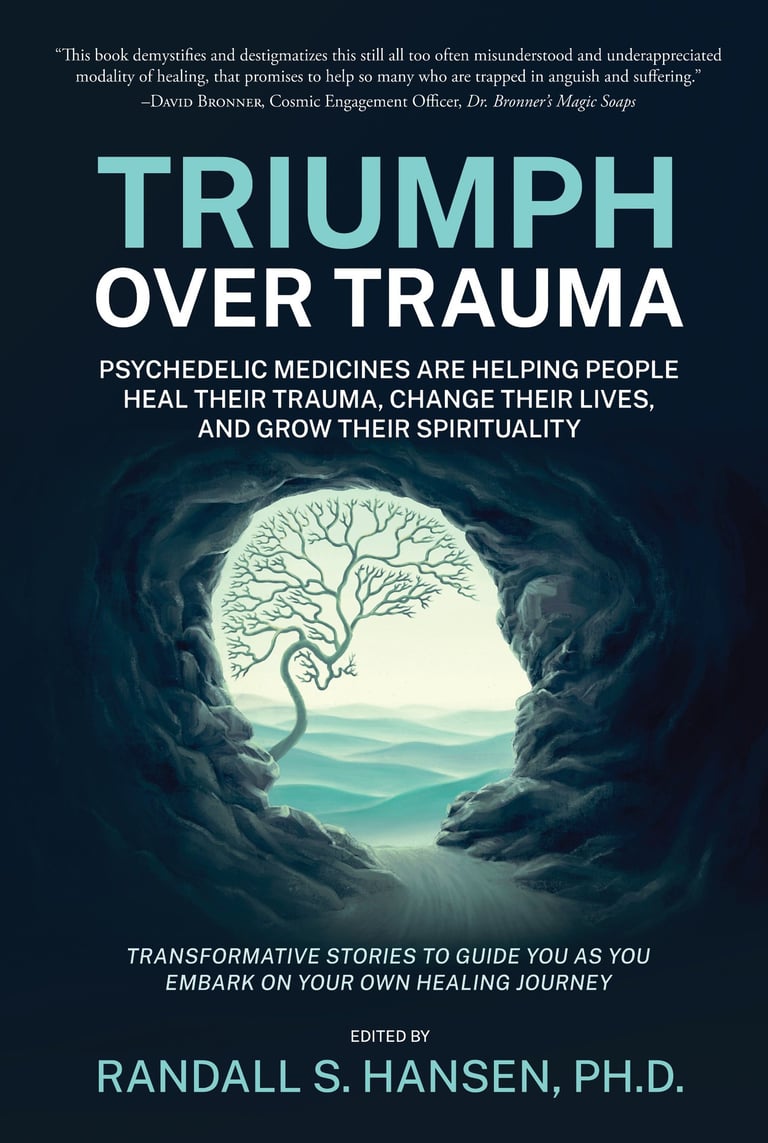Vegetable Oils Are Ubiquitous? Yes… and Please STOP!
Vegetable oils dominate both the food industry and our kitchen pantries. Vegetable oils are the preferred fat used in packaged, convenience, and fast foods.
Is there a problem? Who doesn’t think vegetable oil sounds healthy, right? We know vegetables are good for us, so shouldn’t oil from vegetables be good for us?
Well, maybe if vegetable oils came from the fruits of vegetables, but these oils are actually from the seeds of just a handful of “vegetables,” including corn, soybean, and safflower. It is because of this fact that many people call them seed oils rather than vegetable oils.
Furthermore, for multiple decades, we have been told by health “experts” to consume these vegetable oils rather than more traditional healthy fats, such as butter, tallow, and lard.
Your story may be similar to mine, or maybe you are simply unaware, but the reality is the same: many of us have been duped into consuming unprecedented amounts of so-called vegetable oils in our diets.
Don’t eat fried foods? It doesn’t matter, as vegetable oils are the predominant “fat” used in almost all convenience foods, whether packaged, fast food, or takeout.
These vegetable oils are also the most commonly used oils in home cooking and baking.
Like refined sugar, these harmful seed oils can be found in almost everything in the grocery store, from cookies to pasta to potato chips and other snack foods, to cereals to salad dressings and condiments to baby foods – and more.
See this sidebar that examines many common food and fast food brands that use seed oils: Vegetable Seed Oils in Your Foods.
My story is that I grew up with a mom who loved to bake and cook – and we always had both a can of Crisco as well as a big bottle of “vegetable” oil in the pantry, until she eventually switched to canola oil. She sometimes used butter, but once my dad had a mild heart attack, she was told to stick to vegetable oils and margarine as the “safe” alternatives to butter.
As a young adult, I still used canola oil because I thought it was the safest and most useful oil for cooking and baking… and I was so wrong!
The Most Hidden Health Hazard: Vegetable Oils
Industrial, overly processed seed oils are perhaps the most hidden health issue in the Western diet, but hidden in plain sight if one reads the ingredients list of the foods you buy.
These seed oils – oils that are derived from the seeds of plants, ones that the vast majority of us grew up with -- are extremely unhealthy and inflammatory … and most certainly one of the key factors why we Americans have so many health issues, including mood issues, anxiety, fatigue, weight gain, chronic inflammation, migraines, and more.
Other experts link the massive increase in the use of these vegetable seed oils (along with the massive use of refined sugars) to the rise in major health crises, including heart disease, cancer, obesity, dementia, leaky gut, diabetes, and autoimmune disease.
Certainly the use of these seed oils has completely upset the traditional balance of Omega fatty acids. While we need both Omega-3 and Omega-6 fatty acids, Omega-3 are the healthy fats while Omega-6 are inflammatory – especially at the massive levels we are consuming them.
“Vegetable” seed oils are used in almost all ultra-processed foods (even some organic foods), and are the number one source of calories for people in the U.S. – and all of them are high in Omega-6. It is imperative for our health to restore the balance between Omega-3 and Omega-6.
Historically, people consumed a roughly 1:1 ratio of Omega-6s to Omega-3s. Today this ratio has skyrocketed out of balance all the way up to 30:1 of Omega-6 to Omega-3 for some people.
Important Note: Regardless of the many marketing claims stating they are “heart-healthy,” these seed oils are NOT healthy for anything and anyone… just the opposite – these oils are one of the drivers leading to chronic inflammation.
If you are using/consuming any of these eight seed oils, eliminating them may be the best thing you can do for your health. The oily offenders? Canola (rapeseed), corn, cottonseed, grapeseed, safflower, sunflower, rice bran, and soybean.
By the way, do NOT think by buying the organic versions of these oils you are okay… yes, you are eliminating pesticides and GMOs, but you are still consuming the harmful oils themselves.
What’s the solution? Using real oils – not ones derived from seeds. In my household, we use a combination of real (organic and pastured) butter, avocado oil (which has little taste and amazing heat properties), coconut oil, and olive oil.
But buyer beware; you must research your brand of good oil, as cheaper vegetable oils like soybean oil are often used to adulterate and lower the cost of olive oils and avocado oils. Not only read the label’s ingredients list, but also research the brand (including contacting the company directly, if need be).
The Bizarre History of Vegetable Oils
While vegetable oils have been used for centuries in cooking, medicine, fuel, and lubrication, they were not used extensively nor in the quantity that we know of today. For most of this time, humans mainly used and consumed animal fats such as butter, tallow, and lard.
The story behind commercial vegetable oils begins with the Industrial Revolution of the 1880s and beyond when manufacturers switched to factories using machines to produce products – and with the development of mechanical oil presses to produce the vegetable oils in large quantities.
These factory machines needed lubrication to perform properly, and thus the demand for cheap and ethical sources of oil rose dramatically. (Whale oil had been used as an industrial lubricant for many years, but was stopped when whales reached near extinction.)
In case you were unaware, the majority of seed oils used in our food supply undergo heating, refining, bleaching, and deodorizing after extraction.
Manufacturers turned to industrial seed oils to lubricate machinery. Seed oils also became an important part of producing products such as candles and soaps, thanks to the founders of Procter and Gamble, which used cottonseed oil for its products.
Eventually, Procter and Gamble transformed (or partially hydrogenated) their liquid cottonseed oil into a solid fat that was creamy and butter-like, which they marketed under the Crisco brand. That was in 1911.
Unfortunately, the success of Crisco brought the rise in all the other seed oils, especially soybean and corn oils. Recipes were overhauled and new cookbooks emerged using seed oils as shortening.
Seed oil use and consumption jumped dramatically after saturated fats were demonized following the heart attack suffered by then-president Dwight Eisenhower (even though some accounts state that he did not eat many saturated fats, choosing vegetable oils and margarine over butter and lard.)
The American Heart Association, the federal government, and others got involved in this issue and because vegetable oils contain little saturated fats, they were endorsed as “heart-healthy” and consumers and food manufacturers jumped on the bandwagon.
Then in the 1970s, the federal government pushed the production of monoculture crops, including both corn and soybean, which led to a massive increase in supply. Unfortunately, these crops are produced in ways that are destroying soil health – and our health – by tilling the soil and using massive amounts of synthetic chemicals as insecticides, pesticides, herbicides, and fertilizers.
Because of all these factors, the consumption of polyunsaturated fats increased nearly 300 percent, with the primary source of these polyunsaturated fats being seed oils.
Today, seed oils are refined, bleached, and deodorized using strong and toxic chemical solvents. Sounds healthy, right? Actually, this production process also strips away any and all nutrients, but it does make the product shelf-stable and dramatically extends the shelf life of the oils.
While cottonseed oil was the driver of the seed oil movement, today the king is soybean oil, which is found in most store-bought, takeout, and ultra-processed foods.
Not surprisingly, both corn and soybean crops are greatly subsidized by we taxpayers via the U.S. government, which makes both corn and soybean oil extremely cheap – something food marketers love. Specifically, corn subsidies equaled $3.8 billion, while soybeans equaled $2.6 billion, and cotton about $1 billion.
Sadly, soybean mash that results from the production of soybean oil is a major food source for feedlot animals, but that’s a whole other topic.
Final Thoughts on Vegetable Seed Oils
Time to check your pantry – and your favorite restaurant – for seed oils. (By the way, if you are using margarine rather than butter from pastured cows, you are still on the wrong side of health, as most margarines are made from vegetable oils.)
According to Catherine (Cate) Shanahan, MD, a leading expert in seed oils, these eight oils (corn, soybean, cottonseed, canola/rape seed, sunflower, safflower, grapeseed, and rice bran) collectively comprise up to 80 percent of the average American’s fat calories.
Furthermore, some experts say eating a serving of ultra-processed fries is the equivalent of smoking a pack of cigarettes!
Imagine the combined health dangers of processed/refined sugars and industrial seed oils; it is truly horrifying, and yet both ingredients are found in most ultra-processed foods.
For more than two decades, I have been on a healthy path, eliminating all processed sugars, seed oils, corn syrups, white flour, white rice, refined carbs, and avoiding ALL ultra-processed foods in favor of homemade real foods made from organic, farm-fresh, and pastured produce and meats.
Final note: Look beyond your food for where seed oils can be lurking. Vegetable oils are also found in a variety of products, including cosmetics, soap, perfumes, candles, wood treatment products, and numerous personal care products.
Additional Vegetable Seed Oil Resources
Why Is Vegetable Oil Bad For You? 7 Diseases Vegetable Oils Cause
How Vegetable Oils Replaced Animal Fats in the American Diet
The Dark History of Mainstream Health Guidelines & Seed Oils
Additional Food, Nutrition, and Health Articles From Dr. Randall
Dr. Randall Hansen is an advocate, educator, mentor, ethicist, and thought-leader... helping the world heal from past trauma. He is founder and CEO of EmpoweringSites.com, a network of empowering and transformative Websites, including EmpoweringAdvice.com.
He is the author of the groundbreaking Triumph Over Trauma: Psychedelic Medicines are Helping People Heal Their Trauma, Change Their Lives, and Grow Their Spirituality and the well-received HEAL! Wholeistic Practices to Help Clear Your Trauma, Heal Yourself, and Live Your Best Life.
His latest book is a true game-changer: The HEALing Revolution Diet: A Science-based Approach to Heal Your Gut, Reverse Chronic Illnesses, Lose Weight, Clear Your Mind, and Increase Longevity.
Dr. Hansen's focus and advocacy center around true healing ... healing that results in being able to live an authentic life filled with peace, joy, love. Learn more by visiting his personal Website, RandallSHansen.com. You can also check out Dr. Randall Hansen on LinkedIn.








